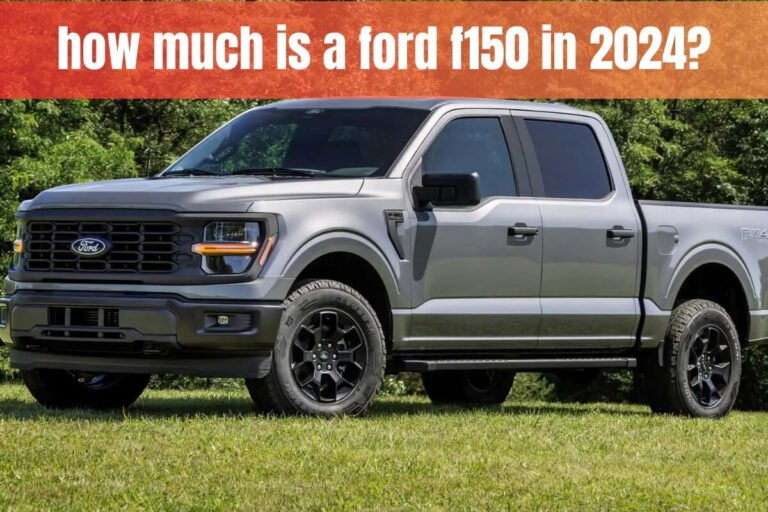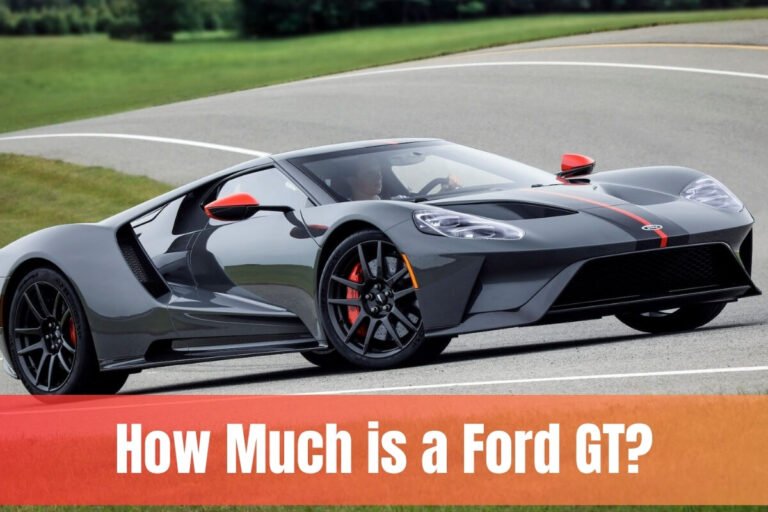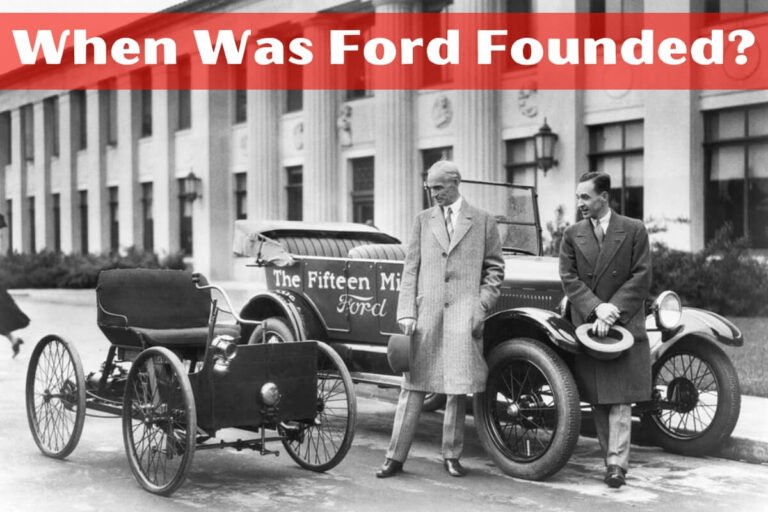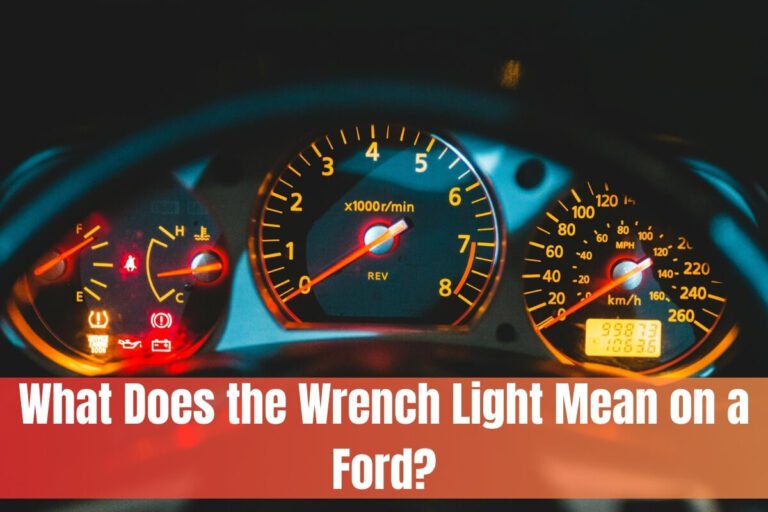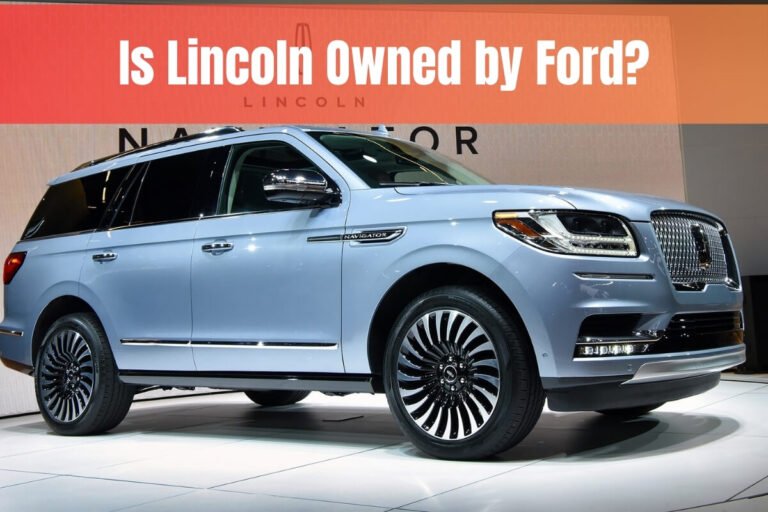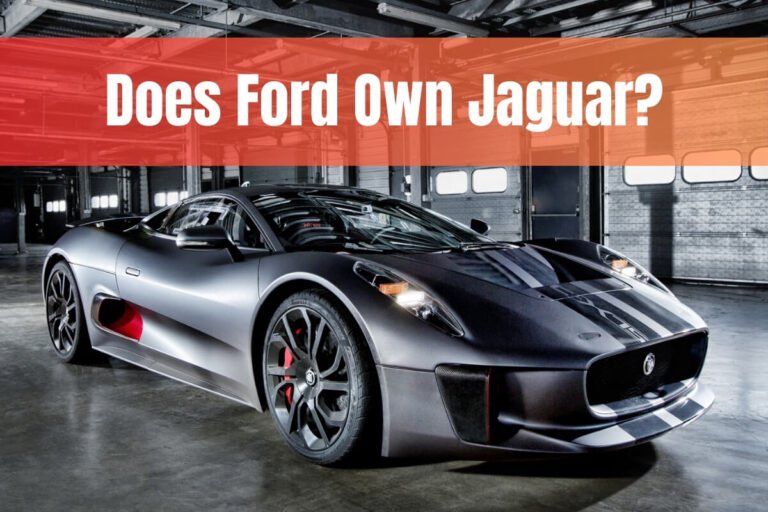Is Rivian Owned by Ford? A Comprehensive Look at the Relationship
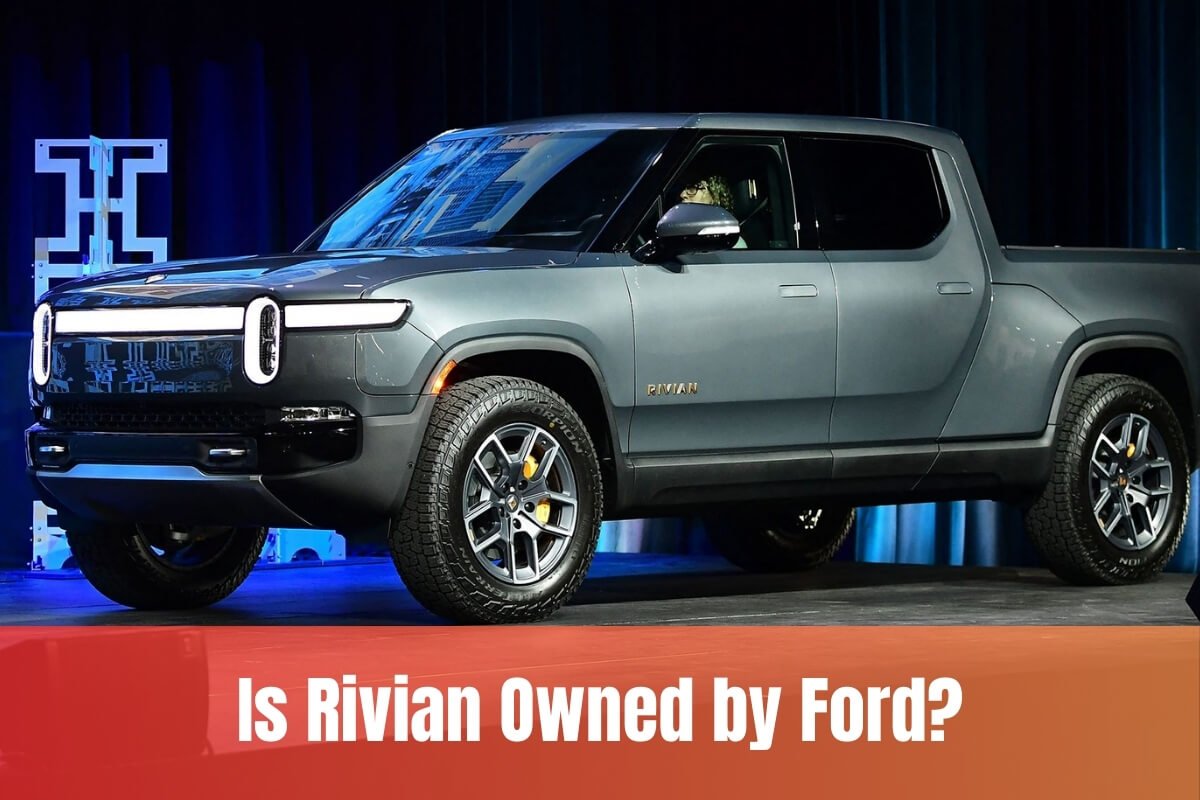
The electric vehicle (EV) revolution is in full swing, and automotive giants are racing to secure their foothold in this rapidly evolving industry. Two prominent names in this space are Rivian, a pioneering EV startup, and Ford, a traditional automaker with a rich heritage. As Rivian continues to make waves with its innovative offerings, questions have arisen about the company’s ownership structure and its relationship with Ford. Is Rivian owned by Ford?
In short, no, Rivian is not owned by Ford, but the two companies have had a significant partnership that has evolved over time.
This article will delve into the intricacies of Rivian’s ownership, exploring Ford’s investment in the EV startup, the journey of Rivian’s public offering, Ford’s subsequent divestment of its stake, and the current ownership structure. Additionally, we will examine the future prospects of collaboration between these two automotive powerhouses and address frequently asked questions to provide a comprehensive understanding of this dynamic relationship.
What Is Rivian?
Before diving into the ownership details, let’s first understand what Rivian is. Rivian Automotive, Inc. is an American electric vehicle manufacturer and automotive technology company founded in 2009 by RJ Scaringe. Headquartered in Irvine, California, Rivian’s primary focus is on developing and producing electric adventure vehicles, including the R1T pickup truck, the R1S SUV, and the Electric Delivery Van (EDV) for commercial use.
Rivian’s innovative approach to vehicle design and its commitment to sustainable transportation have garnered significant attention in the industry. The company has ambitious plans to build an exclusive charging network for its vehicles across the United States and Canada, further enhancing the appeal of its products.
Ford’s Investment in Rivian
In April 2019, Ford Motor Company announced a strategic investment of $500 million in Rivian, acquiring a 12% stake in the EV startup. This move was part of Ford’s broader strategy to embrace electrification and position itself as a leader in the rapidly evolving automotive landscape.
Initially, the partnership between Ford and Rivian had grand plans. The two companies intended to co-develop an all-new, next-generation battery electric vehicle (BEV) for Ford’s growing EV portfolio, leveraging Rivian’s innovative skateboard platform. This platform serves as the foundation for Rivian’s R1T pickup truck and R1S SUV, offering exceptional versatility and performance.
Rivian’s Journey to Going Public
Rivian’s path to becoming a publicly-traded company was marked by significant milestones. In November 2021, Rivian conducted a highly anticipated initial public offering (IPO), raising $11.9 billion by offering 153 million shares at $78 per share. The IPO was a resounding success, with shares closing at $100.73 on the first trading day, valuing the company at nearly $100 billion.
Ford’s stake in Rivian reached a value of more than $10 billion after the IPO, reflecting the immense potential and investor confidence in the EV startup. However, shortly after the public listing, Ford and Rivian announced that they would no longer co-develop an electric vehicle, effectively ending their initial collaboration plans.
Ford’s Divestment of Rivian Shares
Despite the promising start, Ford’s relationship with Rivian took an unexpected turn. Throughout 2022, Ford gradually reduced its stake in the EV company, ultimately selling around 90% of its shares by the end of the year.
The divestment process unfolded as follows:
- In May 2022, Ford sold 8 million Rivian shares, reducing its stake from 11.4% to 9.7%.
- In the third quarter of 2022, Ford sold an additional 51.9 million shares for approximately $1.8 billion.
- By the end of 2022, Ford had sold a total of 91 million Rivian shares, netting $3 billion in proceeds from its initial $1.2 billion investment.
This divestment was driven by several factors, including Rivian’s missed production targets, supply chain challenges, and the broader market downturn that impacted the valuations of EV startups. Ford’s decision to monetize its investment in Rivian was a strategic move to refocus its efforts on its own electric vehicle lineup, which includes the highly anticipated F-150 Lightning pickup truck.
Rivian’s Current Ownership Structure
As of the end of 2022, Ford’s stake in Rivian had dwindled to around 1.15%, owning approximately 11 million shares. This significant reduction in ownership marked a shift in the relationship between the two companies, leaving Ford as a minor shareholder.
So, who are Rivian’s major shareholders now? The company’s ownership is distributed among various entities and individuals, including:
- Amazon: Through its investment arm, Amazon NV Investment Holdings, the e-commerce giant holds an 18.1% stake in Rivian, making it the largest shareholder. Amazon’s substantial investment underscores its commitment to Rivian’s electric vehicle technology and its potential to revolutionize the automotive industry.
- T. Rowe Price Associates: This prominent investment management firm owns an 18.2% stake in Rivian, demonstrating its confidence in the company’s growth prospects and innovative approach to electric vehicles.
- Global Oryx Company: With a 12.7% ownership stake, Global Oryx Company is another significant investor in Rivian, highlighting the growing interest from diverse investors outside the automotive and technology sectors.
- Robert J. Scaringe: As the founder and CEO of Rivian, Robert J. Scaringe holds a substantial individual stake in the company, further underscoring his dedication to realizing Rivian’s vision and goals.
While Ford’s ownership has diminished, the company’s initial investment played a crucial role in Rivian’s early development and helped propel the EV startup towards its current position.
The Future of Rivian and Ford’s Relationship
Despite the reduced ownership stake, the possibility of future collaborations or partnerships between Rivian and Ford cannot be entirely ruled out. Both companies have ambitious plans in the electric vehicle domain, and their paths may cross again as the industry evolves.
Rivian has ambitious expansion plans, including the construction of a new $5 billion manufacturing facility in the state of Georgia. With an anticipated annual production capacity of 400,000 units, this facility aims to meet the growing demand for Rivian’s electric vehicles and support the company’s long-term growth objectives.
On the other hand, Ford is aggressively pursuing its own electric vehicle strategy, with the goal of becoming a leader in the electrification of transportation. The automaker’s lineup includes the highly anticipated F-150 Lightning pickup truck, as well as plans for additional electric models across various segments.
While the initial collaboration plans between Rivian and Ford may have been abandoned, the dynamic nature of the automotive industry leaves open the possibility of future partnerships or collaborations. As both companies strive to innovate and adapt to changing market conditions, strategic alliances or technology-sharing agreements could potentially benefit both parties.
Frequently Asked Questions
Is Rivian owned by Ford?
No, Rivian is not owned by Ford. While Ford initially held a 12% stake in Rivian, it has since sold most of its shares, reducing its ownership to approximately 1.15% by the end of 2022.
Why did Ford invest in Rivian initially?
Ford’s initial investment of $500 million in Rivian in 2019 was part of its strategy to embrace electrification and position itself as a leader in the evolving automotive landscape. The partnership aimed to leverage Rivian’s innovative skateboard platform for the co-development of a next-generation battery electric vehicle.
What percentage of Rivian does Ford currently own?
As of the end of 2022, Ford’s ownership stake in Rivian stood at approximately 1.15%, or around 11 million shares.
Who are Rivian’s major shareholders?
Rivian’s major shareholders include Amazon NV Investment Holdings (18.1% stake), T. Rowe Price Associates (18.2% stake), Global Oryx Company (12.7% stake), and Rivian’s founder and CEO, Robert J. Scaringe, who holds a significant individual stake.
What led to Ford selling most of its Rivian shares?
Ford’s decision to sell most of its Rivian shares was driven by several factors, including Rivian’s missed production targets, supply chain challenges, and the broader market downturn that impacted the valuations of EV startups. Additionally, Ford aimed to refocus its efforts on its own electric vehicle lineup.
Will Rivian and Ford collaborate again in the future?
While the initial collaboration plans between Rivian and Ford have been abandoned, the possibility of future partnerships or collaborations cannot be entirely ruled out. As both companies continue to innovate and adapt to changing market conditions, strategic alliances or technology-sharing agreements could potentially benefit both parties.
Other Relevant Topics
Rivian’s Production Challenges and Recalls
Despite being a trailblazer in the electric vehicle space, Rivian has faced its fair share of challenges. In 2022, the company was forced to recall nearly 13,000 vehicles due to reports of loose torque bolts, a potential safety concern. While no injuries were reported, this recall highlighted the importance of rigorous quality control measures as Rivian scales up its production operations.
Additionally, Rivian has struggled to meet its initial production targets, partly due to the ongoing global semiconductor shortage and supply chain disruptions. These challenges have led the company to adjust its production forecasts and prioritize certain models over others, such as emphasizing the Adventure model of the R1T over the lower-priced Explore package.
Competitive Landscape in the Electric Vehicle Market
The electric vehicle market is becoming increasingly competitive, with established automakers and emerging startups vying for a share of this rapidly growing segment. While Rivian has garnered significant attention for its innovative products and sustainable approach, it faces stiff competition from industry giants like Tesla, Ford, General Motors, and Volkswagen, among others.
Tesla, in particular, has been a trailblazer in the EV space and continues to dominate the market with its diverse range of electric vehicles and advanced battery technology. Ford’s F-150 Lightning and the upcoming Chevrolet Silverado EV also pose direct competition to Rivian’s R1T pickup truck in the highly lucrative truck market.
As the competition intensifies, Rivian will need to leverage its unique strengths, such as its rugged and adventure-focused designs, while continuously innovating and improving its products to maintain a competitive edge.
Importance of Strategic Partnerships and Investments in the Automotive Industry
The automotive industry is undergoing a transformative shift towards electrification, connectivity, and autonomous driving technologies. In this rapidly evolving landscape, strategic partnerships and investments have become crucial for companies to stay ahead of the curve.
Ford’s initial investment in Rivian and their planned collaboration exemplify the importance of such partnerships. By leveraging each other’s strengths and expertise, traditional automakers and startups can accelerate the development of cutting-edge technologies and bring innovative products to market more efficiently.
Moving forward, we can expect to see more collaborations, joint ventures, and cross-industry partnerships as companies strive to navigate the complexities of the electric vehicle ecosystem and secure their position in the future of mobility.
Final Thoughts
In conclusion, while Rivian is not owned by Ford, the two companies have shared a significant relationship that has evolved over time. Ford’s initial investment and planned collaboration with Rivian marked a strategic move to embrace electrification and leverage the startup’s innovative technology.
However, as circumstances changed and priorities shifted, Ford gradually divested most of its stake in Rivian, reducing its ownership to a minor holding. Rivian’s current ownership structure is diverse, with major stakeholders including Amazon, T. Rowe Price Associates, Global Oryx Company, and Rivian’s founder, Robert J. Scaringe.
Despite the reduced ownership stake, the possibility of future collaborations or partnerships between Rivian and Ford cannot be entirely ruled out, as the dynamic nature of the automotive industry may present new opportunities for strategic alliances.
As Rivian continues to navigate production challenges, recalls, and intense competition in the electric vehicle market, the importance of strategic partnerships and investments becomes increasingly evident. By leveraging each other’s strengths and expertise, companies can accelerate the development of cutting-edge technologies and bring innovative products to market more efficiently.
The electric vehicle revolution is rapidly transforming the automotive industry, and companies like Rivian and Ford are at the forefront of this transformation. While their paths may have diverged for now, the future holds the potential for new collaborations and innovative partnerships that could shape the future of sustainable mobility.

